 |  |  |
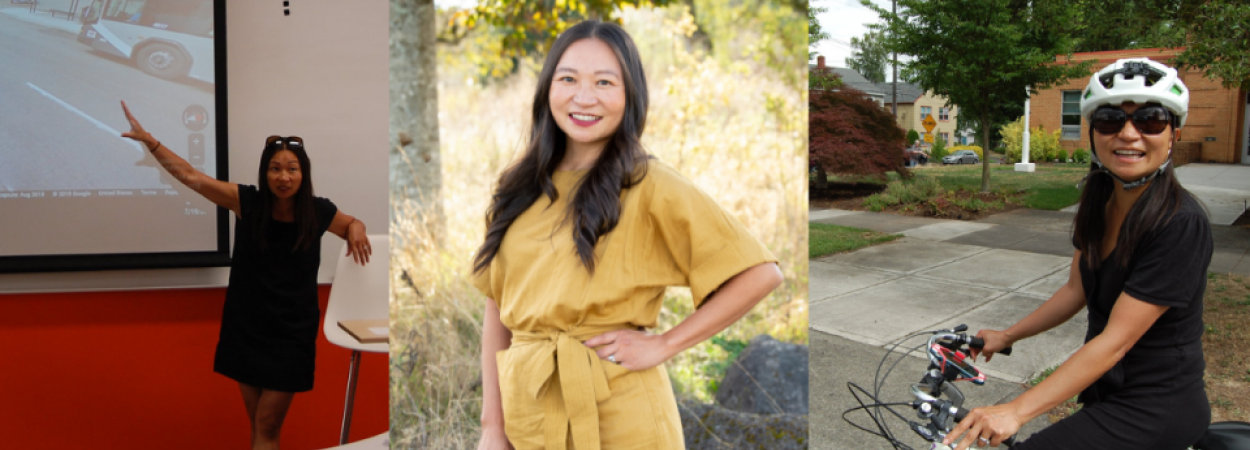
After 17 years of service to TREC, Portland State University's Transportation Research and Education Center, associate director Hau Hagedorn is moving on to a new position as the Community Investments Manager for Oregon Metro. We will miss her as a colleague, as a model for transportation photos (here she is on the cover of our 2022 Annual Report) and as a seemingly inexhaustible source of energy and inspiration!
During her time at TREC, Hau devoted tireless efforts to improving access to transportation and mobility for people of all ages, communities, and incomes. Her perseverance and commitment have been recognized in the form of numerous accolades and awards. In 2020, she received the CUTC-ARTBA Award for Administrative Leadership from the Council of University Tra…
Read More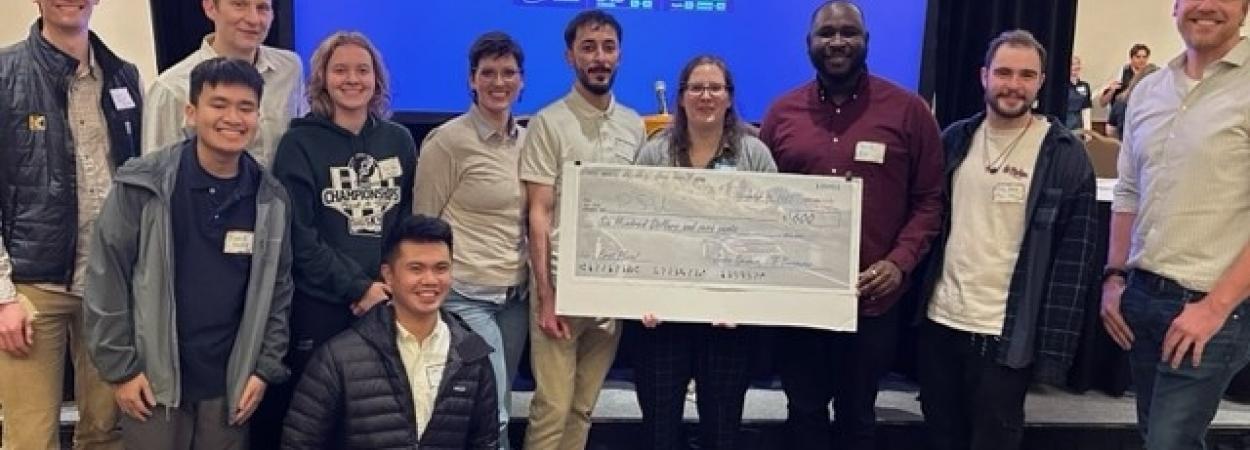
Earlier this month, Portland State University’s Students in Transportation Engineering and Planning (ITE-STEP) group competed in the 32nd annual Bill Kloos Traffic Bowl Competition held by Oregon ITE.
It was a tight finish against University of Washington and Oregon Tech, but the PSU student team took first place and impressed the crowd with their knowledge of signs, MUTCD, roundabouts, factors, and all things transportation. They won a $600 cash prize to support STEP activities. Because of this win, the team will now have the opportunity to compete in the 2024 ITE Western District Traffic Bowl.
Portland State University 2023 Team
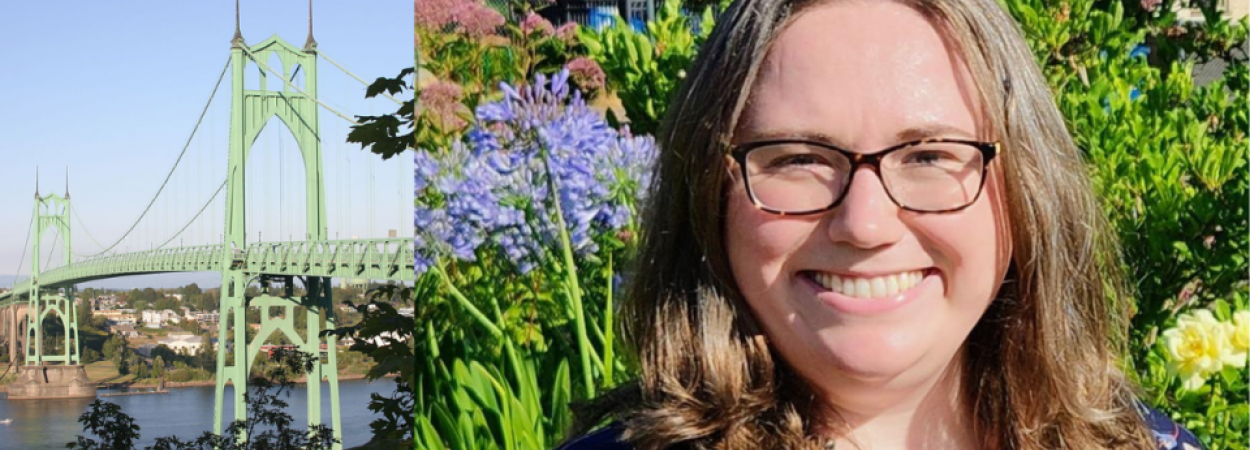
This is a reprint of a news story originally published by the Maseeh College of Engineering and Computer Science.
We are proud to congratulate Portland State University Civil & Environmental Engineering PhD student Kayla Sorenson, who has been awarded the 2023 Dwight David Eisenhower Transportation Fellowship presented by the U.S. Department of Transportation.
Kayla is also the recipient of the 2023-2024 fellowship for Earthquake Risk Mitigation by the Federal Emergency Management Agency (FEMA) and the Earthquake Engineering Research Institute (EERI). She has served on the EERI's Student Leadership Council since 2020, serving as co-president last year. Kayla is also involved in the EERI PSU student chapter, attending multiple outreach events aimed at strengthening the ties between the community, industry profe…
Read More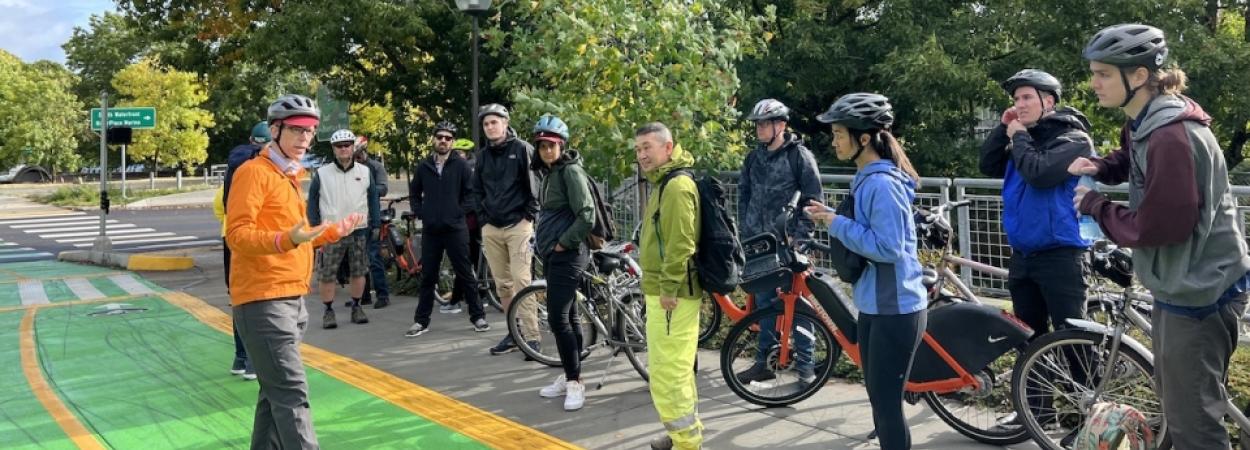
Managing the entire transportation system requires an integrated understanding of all modes. While the focus of transportation system management and operations (TSMO) has been largely focused on vehicles, understanding how the transportation system can work better for bicyclists, pedestrians, and transit can help provide safe, reliable, and cost-effective transportation options to improve communities and economic vitality for people and businesses.
To encourage practical grounding of transportation from the different vulnerable road user perspectives, PSU's Transportation Research and Education Center (TREC) held a two-day training workshop for a cohort of around 100 Washington Department of Transportation (WSDOT) staff members.
The two-day workshop, which featured classroom presentations as well as mobile tours on bike, foot, and public transportation, was held September 26-28 at Portland State University. Presentations on topics like Transporta…
Read More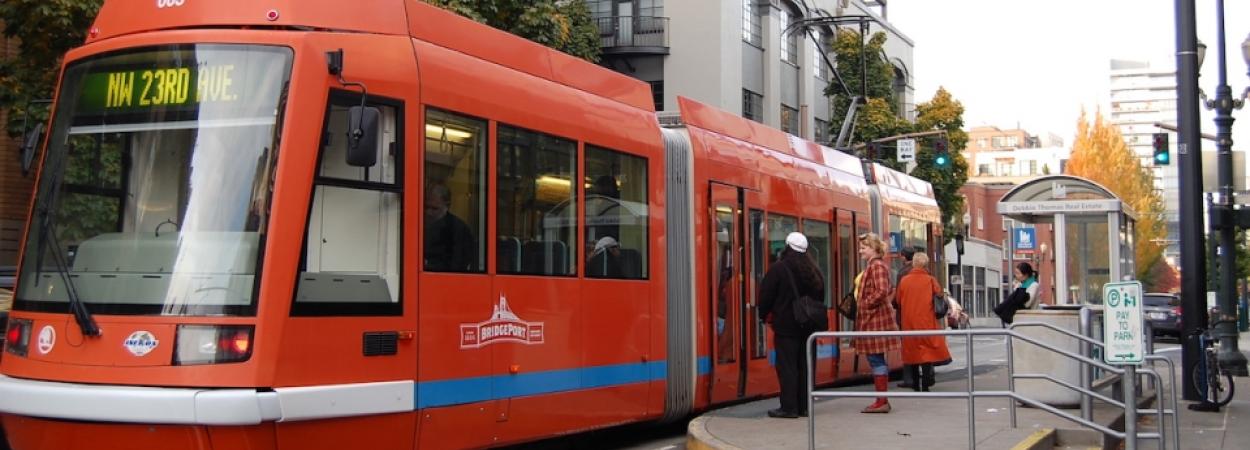
Portland State University (PSU) researchers will create a "Research Roadmap for Institutionalizing Transportation Equity," in an attempt to identify and standardize best practices relating to social equity in transportation organizations. Led by principal investigator Aaron Golub, a professor in the Toulan School of Urban Studies and Planning at PSU, the project is supported by a $250,000 funding contract from the National Cooperative Highway Research Program (NCHRP). Along with PSU researchers, the project team also includes AOA (Ontiveros & Associates, LLC) and Bills Formula Consulting LL.
Read more about the project: NCHRP Project 20-123(19) Equity Research Roadmap.
All people, regardless of their background, income, or physical abilities, need access to safe, affordable, and convenient transportation options and services. State departments o…
Read More